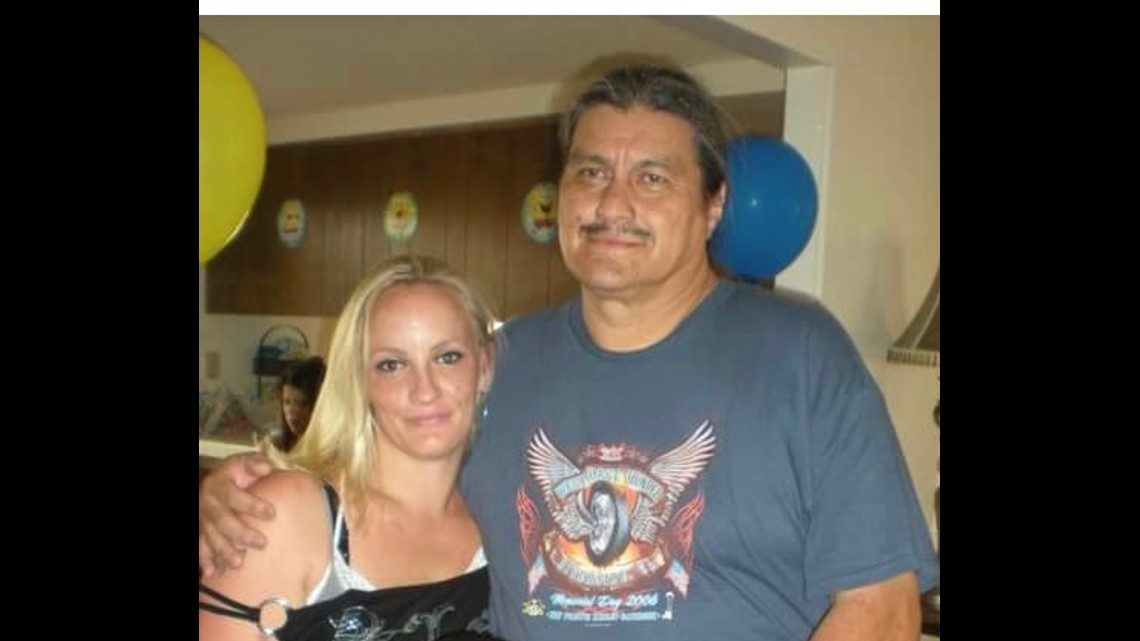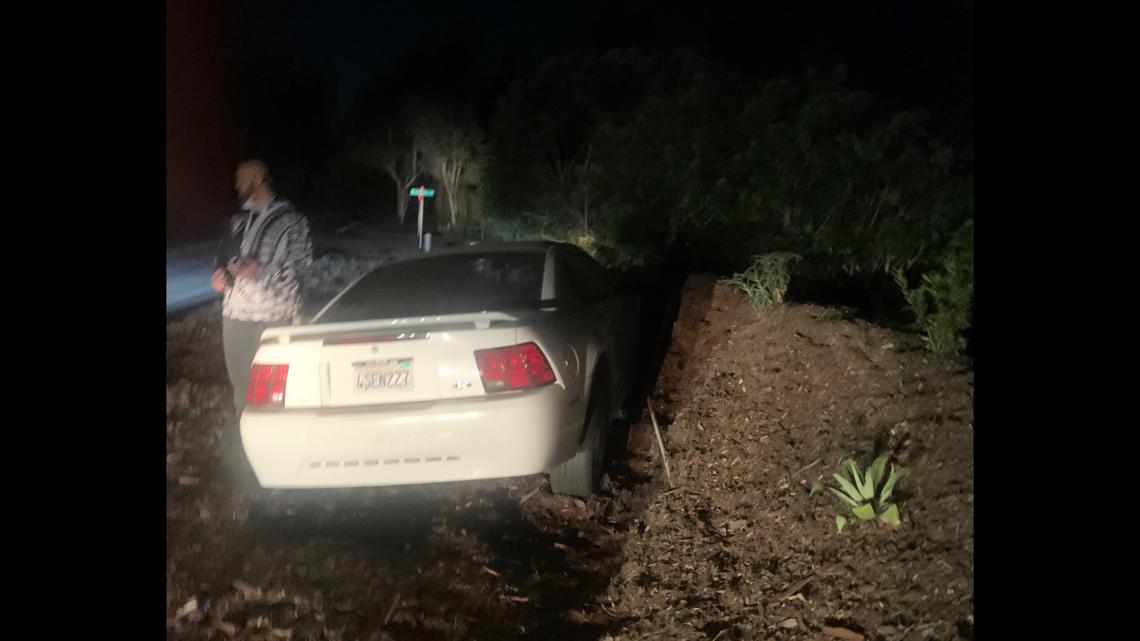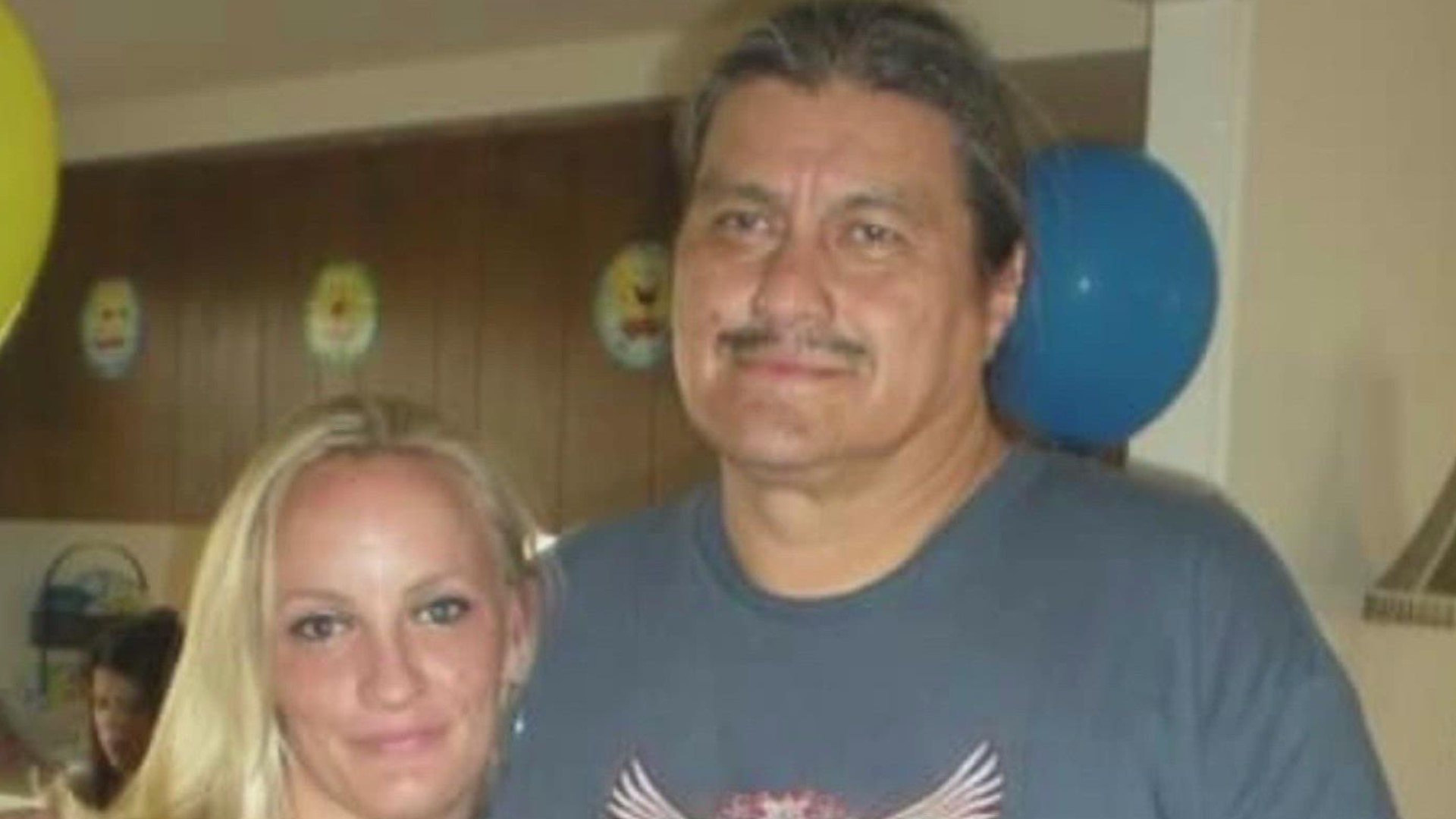SAN DIEGO — Jennifer Schmidt wants justice for her dad. Images of her father lying dead inside of a jail cell for 15 hours, rigor setting into his body, haunt her at night.
In a new legal claim against the county of San Diego, Schmidt says her dad, Gilbert Gil, didn't need to die. She says he should have never been in jail in the first place.
Schmidt says deputies arrested her dad twice in a span of three days in February of this year for being under the influence when in fact he suffered from dementia and was diabetic. She says deputies refused to acknowledge his medical condition and instead painted him as an out-of-control meth user in the grips of a meth-induced rage.
Schmidt wants justice for her father and to prevent others from potentially suffering the same fate. She says the Sheriff's Department has not provided any details about how and why her father died. And, she has yet to receive the medical examiner's report or videos from inside the jail cell that night.


The First Arrest
Jennifer Schmidt says her 67-year-old dad suffered from dementia. In December 2021, Gil went missing for several days and was later found after the family filed a missing person report. After Gil was found, Schmidt says she placed a tracking device on his keys to make sure the family could find him if he went missing again.
On February 12, Schmidt became worried after her dad didn't show up at her house after he got off of work.
She checked the tracking device and found that he was in Rancho Santa Fe, miles from his home and in the opposite direction from her Escondido home. She also discovered there was a car accident reported at the same location. She got into her car and drove to check on him.
When she arrived, deputies told her that they received calls about an erratic driver. Gil's car had spun out on the side of the road.


Schmidt says deputies had handcuffed Gil. She asked to speak to her dad.
"I'd never seen him like that," Schmidt told CBS 8 in a July 29 interview. "I had never seen him that way. He was shaking and moving his head and he couldn't really talk. But he was like, just confused, really confused"
Schmidt says she checked her dad's stomach for marks from the insulin shots and didn't see any. She suspected that her dad's strange behavior may have been a combination of not having enough insulin and his dementia.
"I told him to just listen to what the deputy says. And I'll see him in a little bit."
At six the following morning, Schmidt was at the Vista Detention Facility. A deputy there says he's on the book and release queue but he was not sobering up. Schmidt told the nurse that he wasn't drunk or high and that he suffered from dementia and diabetes.
She says they released him shortly after.
"He was ten times worse than when they arrested him. He couldn't hold a conversation. He couldn't answer any questions. I finally got him into the car and brought him to my house. My daughter had to give him her sippy cup because he couldn't even hold a bottle of water," said Schmidt.
Around 4 pm that night, February 13, Schmidt took him to his house that he shared with his brother and his nephew. She says she left a few hours later.
The Second Arrest
A few hours later, Schmidt says her cousin called her telling her Gil was out of his mind. Her cousin told her that they were calling 9-1-1 for help, that Gil was screaming for his mother and didn't know who his brother was.
About thirty minutes later Schmidt says she called her cousin back to find out where the ambulance took him.
"My cousin told me that the police took him. I asked him why the police took him and he was like, I don't know. He told me that they took him in handcuffs.
Schmidt eventually went to Palomar Hospital where Gil was admitted.
"A nurse pulled me aside. She's like, he's under arrest. That's why we can't tell you anything."
Schmidt says she went home expecting to pick her dad up in the morning.
"The next day I'm looking for his name in jail. I called and they would not give me any information. This was on Valentine's Day," Schmidt says, choking back tears. "I called probably 50 times they would not tell me anything. I found out that morning that he was gone."
The In-Custody Death
According to a February 15 press release, the San Diego County Sheriff's Department announced Gil's death. The release, while preliminary, stated Gil was arrested on February 12 for driving while under the influence of drugs. The department then said he was arrested again the following night on February 13 for being under the influence of a controlled substance and after observation at Palomar Hospital was booked into a holding cell at 2:28 in the morning on February 14. Just over 15-and-a-half hours later, deputies found Gil dead.
"The Medical Examiner's Office conducted the autopsy of Gil today," reads the February 15 release. "Gil tested presumptively positive for methamphetamine. The cause and manner of death are pending laboratory results and further evaluation."
Schmidt, however, accuses the department of trying to cover up the real cause of her father's death.
"I called the Sheriff when I found out and he asked me if my dad told me about being in a fight in jail. I said no. Then he asked if my dad mentioned how the deputies were treating him. I said, 'Why are you asking me this? He's like, routine.'"
Added Schmidt, "I saw his body a few days later. And I knew why the deputy was asking me those questions. He had a huge mark that went back into his hair on his forehead.."
Schmidt says when she couldn't get any information from the medical examiner's office, she reached out to Colin Kaepernick's Know Your Rights Campaign and the Autopsy Initiative to see if they would be willing to take on her dad's case.
"We provide free secondary autopsies on behalf of those who die in custody, whether juveniles or adults, in prisons, jails, or in the process of being detained," said Iman McAllister of the Autopsy Initiative.
"We are a resource to victims' families, to help them and to ensure a medically sound and objective autopsy is performed. In so many cases across the country, questions arise about the state's cause of death determination or lack thereof. Often times medical examiners are on the same payroll as law enforcement and it is not unheard of for law enforcement officials to be present during the initial autopsy. All these raise questions. We want to try and help answer some of those questions."
The Preliminary Findings
The Autopsy Initiative performed a third-party autopsy. Schmidt says the preliminary findings appear to confirm her suspicions about her father's death.
A toxicology report showed that Gil did not have any drugs or alcohol in his system.
Meanwhile, a preliminary autopsy found that Gil did not die from any heart-related issues and did not have clots which would bolster claims that he died from COVID-19.
It did find, according to Schmidt's legal claim, that Gil died from asphyxiation, his toes, and fingers had turned blue from a lack of oxygen.
"I just think of how scared he must have been," said Schmidt. "I hope that he was so out of his mind that he didn't know what was happening. He's never ever even been in a fight. He wasn't that type of man. He had a loud mouth and a soft heart."
Schmidt has been working with local advocacy groups to try and put pressure on the Sheriff's Department to implement change.
Meanwhile, a bill that seeks to improve conditions in county jails while placing emphasis on mental health checks inside is moving through the state legislature.
Assemblymember Dr. Akilah Weber, along with other San Diego representatives, Tasha Boerner Horvath (AD 76), Ben Hueso (SD 40), Brian Maienschein (AD 77) and Chris Ward (AD 77), introduced the Saving Lives in Custody Act (Assembly Bill 2343). Now moving through the senate, if passed the bill would require health evaluations, boost training inside jails, and require additional safety checks.
"The San Diego County Sheriff’s Department had 185 in-custody deaths from 2006-2020, more deaths per average daily population than any other county in the State. In 2020 there were 18, so far this year, there have been 15," stated Dr. Akilah Weber in a statement to CBS 8. "The bill would remedy the systemic failure of the San Diego Sheriff’s Department to properly care for inmates. And the fact these deaths have continued underscores the need to put safety and health protocols in place immediately."
And while Schmidt says she welcomes the new law, nothing will bring back her dad.
"Everybody knows what I'm thinking about," she says. "Nobody will even talk to me about it because I start crying or I get angry. I just keep saying it's not fair. It's just not fair. I mean, it shouldn't happen to anybody. I don't care what you're on or what you're doing. It just should not happen. To be cold, alone in a jail cell, just left naked and dead."
WATCH RELATED: State auditor issues scathing report on San Diego County jail deaths
WATCH RELATED: Families of inmates who died in custody respond to scathing audit on county jails.

